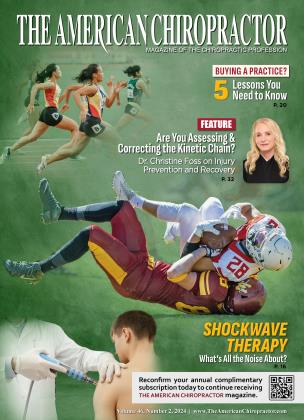Longevity Nutrients, Part I
February 1 2024 Lynn TooheyLongevity Nutrients, Part I
February 1 2024 Lynn TooheyIs Ergothioneine the Longevity Vitamin? (Longevity Nutrients, Part I)
by Lynn Toohey, PhD
What is ergothioneine, and why is it called “the longevity vitamin” by top scientists?
Ergothioneine is an amino acid found mainly in mushrooms as a dietary source, but only a few other sources contain substantial amounts. It is called the longevity vitamin by reputable researchers, including RB Beelman et al., who noted in the Journal of Nutritional Sciences (Cambridge) that “we believe that ergothioneine is a ‘longevity vitamin’ that is limited in the American diet.”1 These researchers posit that “limited intake of ergothioneine in the diet may compromise long-term health and life expectancy,” and, therefore, should be considered a conditionally essential amino acid/vitamin.
When it comes to support for longevity, we know several things. Anything that combats cellular damage is helpful because preserving cell integrity keeps all biological processes in homeostasis and functioning as they should. Anything that aids in cellular repair, function, or replication, such as basic stem cells that allow tissue regeneration, should be considered part of a longevity protocol. Many nutrients support healthy aging, cellular function, repair, and regeneration. Many environmental influences prematurely age cells and cause dysfunction. Avoiding damage to the telomeres that have limited reproductive powers and are associated with an optimal aging process is critical for any longevity protocol. Antioxidants that counteract damaging free radicals (oxidation) enhance the defenses of all cells, such as the mitochondria, and are major players in any longevity protocol.
Shortened telomeres are associated with aging, and researchers call ergothioneine a “novel antioxidant,” associated with specifically targeting the free radicals that damage the energy-producing mitochondria and telomeres. Scientists tested telomere length under oxidative stress conditions, and ergothioneine was correlated with longer telomeres.2
Shiitake, maitake, and oyster mushrooms are exceptionally high in ergothioneine and are considered a good food and supplement source for this aging support nutrient. Researchers behind a cross-sectional study involving over 600 participants reported on the potential role of mushrooms and their bioactive compounds to contribute to neuronal and cognitive health. Participants who consumed more than two portions of mushrooms a week had the best association with cognitive/neuronal support and lack of dysfunction.3
Dan Murphy, DC, lectures extensively on important keys to longevity. Dr. Murphy notes longevity expert Bruce Ames, PhD, the famous biochemist who developed the Triage Theory on Longevity. Dr. Ames explains that there are proteins needed for immediate survival and reproduction (survival proteins) and proteins that function in long-term health (longevity proteins) and proposes that any modest deficiency in any of the nutrients or co-factors needed for survival proteins will sacrifice nutrients or co-factors that are needed for optimal function of the longevity proteins needed for long term healthy aging. Thus, many nutrients play a double role in survival and longevity, and draining valuable resource nutrients for survival can result in sub-optimal unhealthy aging processes.
Dr. Ames lists several of these nutrients, such as ergothioneine, at the top. Other evidence led Dr. Ames to classify taurine as a conditional vitamin, stating that other vitamins should include lipoic acid, co-q-10, and carnitine. Dr. Ames explains that aside from essential vitamins and minerals needed for survival, there are dietary biochemicals that are putative longevity nutrients. That list includes pyrroloquinoline quinone (PQQ) lutein, zeaxanthin, lycopene, and astaxanthin.4 While ergothioneine appears to be a powerhouse longevity nutrient, it is not the only one, and scientists recommend synergy with other longevity nutrients for optimal healthy aging. In the next issue, we will look closer at some of these other longevity nutrients and their role in keeping us at our best!
Beelman RB, et al. Is ergothioneine a ‘longevity vitamin’ limited in the American diet?’ J Nutr Sci. 2020 Nov 11;9:e52
3Priscilla S, et al. 2022. Ergothioneine Mitigates Telomere Shortening under Oxidative Stress Conditions, Journal of Dietary Supplements, 19:2, 212-225; Han Y, et al. The current status of biotechnological production and the application of a novel antioxidant ergothioneine. Crit Rev Biotechnol. 2021 Jun;41(4):580-593.
Feng, L. et al. The Association between Mushroom Consumption and Mild Cognitive Impairment: A Community-Based Cross-Sectional Study in Singapore J of Alzheimer’s Disease 2019; 68(1):197-203.
Ames BN. Prolonging healthy aging: Longevity vitamins and proteins. Proc Natl Acad Sci U S A. 2018 Oct 23;115(43):10836-10844
Dr. Lynn Toohey organizes seminars and consults as a nutritional expert at Nutri-West (www.nutriwest.Com). Toohey also authored the Functional Health Evaluation program that analyzes blood tests and raw DNA data (www.FHEcloud.com). You can reach Dr. Toohey at [email protected] with any questions.
 View Full Issue
View Full Issue






